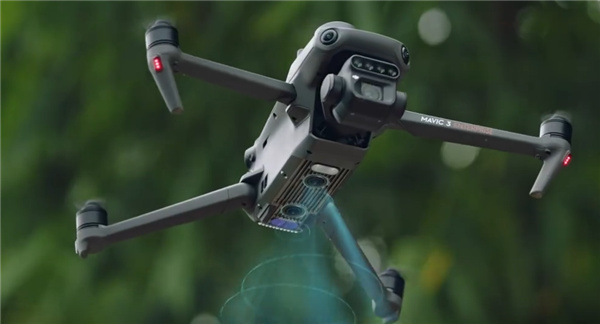The increasing presence of drones over USA skies is not just a fleeting trend; it signifies a transformative era in aviation technology and its diverse applications. The use of drones spans across various sectors, from commercial delivery services to military operations, agriculture, and content creation. As these unmanned aerial vehicles (UAVs) continue to evolve, their influence on American skies becomes more pronounced and widespread. This article delves into the factors contributing to the surge of drones flying over the United States and examines the implications of this technological growth.
Commercial Applications of Drones
The commercial potential of drones over USA landscapes is vast. One of the most talked-about applications is package delivery. Companies like Amazon and UPS are actively testing drone delivery services, which promise to revolutionize the logistics industry. This could drastically reduce delivery times and lower costs for businesses and consumers alike. Moreover, in the agriculture sector, drones provide farmers with innovative tools for crop monitoring, spraying, and even planting, leading to increased productivity and reduced manual labor.
Military and Surveillance Uses
A significant portion of drones in the USA skies is allocated for military and surveillance purposes. The United States military employs drones for intelligence gathering, reconnaissance missions, and in some cases, targeted strikes. The advantage of using drones in military operations lies in their ability to perform risky missions without endangering human pilots. Additionally, law enforcement agencies utilize drones for surveillance and monitoring large-scale events, enhancing their operational efficiency.
Regulatory Environment and Challenges
The proliferation of drones has introduced a host of regulatory challenges. The Federal Aviation Administration (FAA) has developed specific regulations to ensure the safe integration of drones into the national airspace. These regulations include requirements for drone registration, operational limitations, and pilot certification. However, keeping pace with the rapid advancements in drone technology remains a challenge for regulatory bodies.
Impact on Privacy and Security
Drones over USA territories have sparked significant discussions about privacy and security. As drones become more prevalent, the potential for misuse, such as unauthorized surveillance, increases. This concern has led to the proposal of stricter regulations and guidelines to protect citizen privacy while promoting responsible drone operation. Moreover, the risk of drones being used for illicit activities poses a security threat that authorities are keenly addressing.

To mitigate these risks, technological advancements in drone identification and monitoring systems are being developed. These innovations aim to provide real-time tracking and management of drone traffic, ensuring the safety and security of the airspace.
The Future Landscape
The future of drones over USA skies looks promising, with ongoing advancements in autonomy, battery life, and payload capacity. As these technologies mature, drones will likely find new roles in disaster response, medical deliveries, and urban planning. The increased capability of drones to operate independently through artificial intelligence and machine learning will further accelerate their adoption in various domains.
The integration of drones into everyday life embodies both opportunities and challenges that society must navigate. Balancing innovation with regulation will be key to ensuring that drones continue to contribute positively to the economy and society.
FAQs About Drones Over USA
Q: What are the primary regulations for drone operation in the USA?
A: The FAA requires drone operators to register their drones, adhere to altitude limits, maintain line-of-sight during operation, and secure proper certification for commercial use.
Q: How do drones impact personal privacy?
A: Drones have the potential to invade privacy through surveillance capabilities. Regulations are being enforced to curb unauthorized data collection and protect citizen privacy.
Q: What advancements can we expect in drone technology?
A: Future advancements in drones will likely focus on increasing autonomy through AI, enhancing payload capacities, extending battery life, and improving real-time tracking systems for safer airspace management.